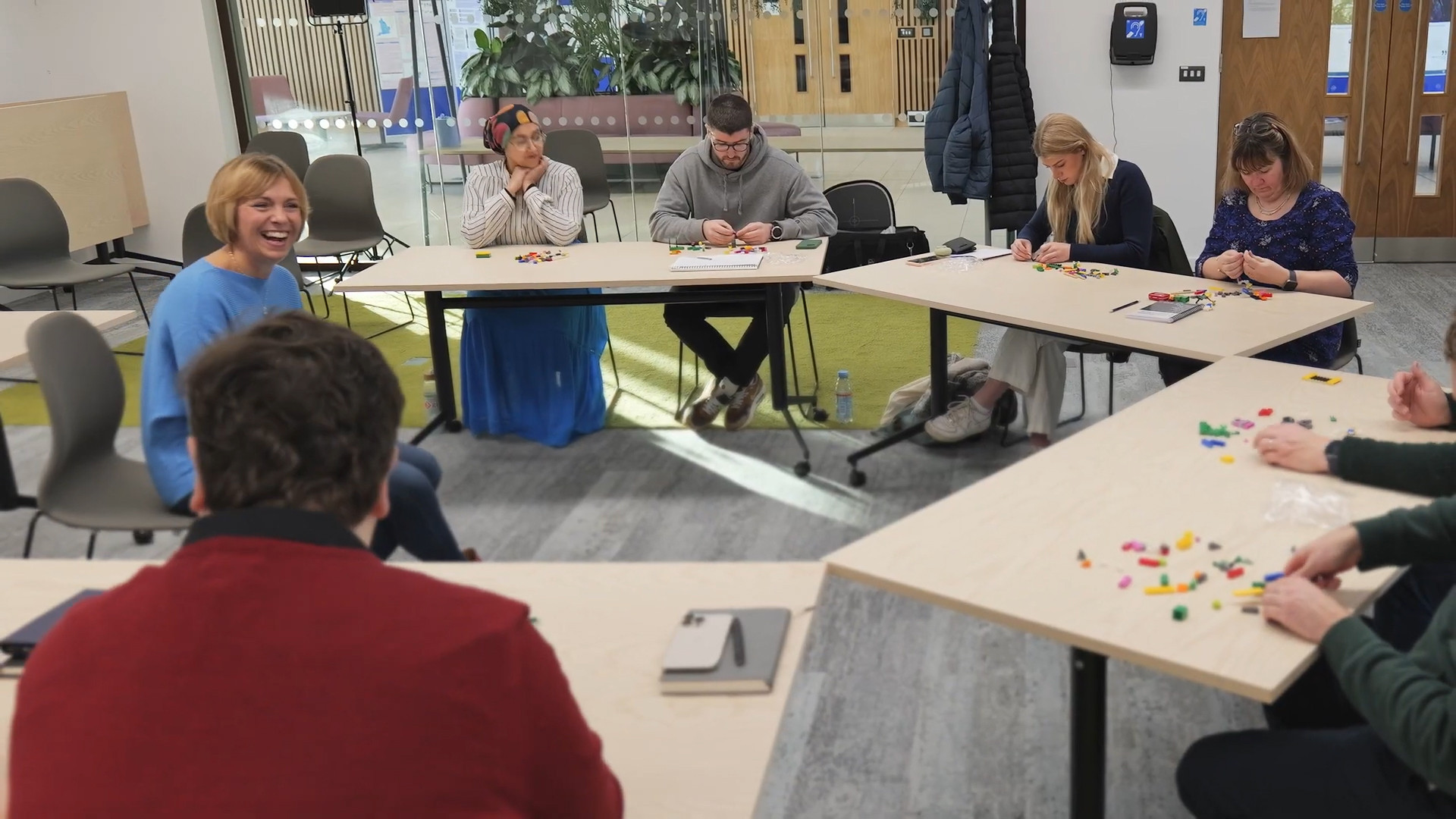
GAI champions: Navigating the transformative landscape of learning
Find out how the integration of Generative Artificial Intelligence within classrooms can contribute positively to student engagement, progression and satisfaction.
- Home
- / Insights
- / Knowledge sharing
- / Design matters
Design matters

Authors

Professor Radka Newton
Personal Chair and Director of the Centre for Scholarship and Innovation in Management Education, Lancaster University Management School
In universities and business schools, one common observation – and criticism – is that the organisations themselves do not take enough advantage of the expertise available at their fingertips.
Academic researchers spend years getting to the heart of their subjects, engaging with practitioners, and gaining an in-depth understanding of the way things work – and could work better.
In business schools, we have professors and lecturers who take their work to outside organisations and see them reap the benefits through research collaborations or knowledge exchange programmes. Likewise, our students take this learning from the classroom and apply it – at least we would hope – throughout their careers.
So, why do university and business school staff not do the same? Why can we not share our insights and expertise to help improve the very institutions in which we work? It turns out it can be done – and our work here at Lancaster shows how beneficial it can be.
Design matters in business
For the past five years, I have been pioneering the application of design thinking in Lancaster University Management School’s entrepreneurship and innovation curriculum. It is this programme which caught the attention of a team within the wider university.
Fostering a designer mindset in business and management students has proved both challenging and rewarding. The dynamic collaboration between academic teams in the management school and design school in Lancaster led to a number of learning design iterations and resulted in an asynchronous, self-paced pre-arrival design thinking primer, the Good Place Lab, that introduces basic principles of design in relation to innovation of the Lancaster Campus.
The challenge that learners have to tackle is: How might we create an inclusive campus environment for students of diverse backgrounds and abilities to enjoy outdoor activities together in a safe and fun way?
Student uptake and feedback have demonstrated that online learning can be fun and has the potential to provide a safe space for experimenting and developing new skills and capabilities mapped against the European Entrepreneurship Competence Framework (EntreComp). The collaborative development approach is a part of a wider project in developing a design thinking mindset for inclusive place-based innovation that has been nominated for the Advance HE Collaborative Teaching Excellence Award.
Our work caught the attention of a University Innovation and Mobile Development team, led by Brian Green. They approached me with interest in joining my Design Thinking class.
Design matters in professional development
The Good Place Lab seemed like an ideal digital solution and a great opportunity for us to pilot the course via hybrid delivery, enhanced with team coaching and a final in-person capstone event. When we had this in place, university staff were able to embark on the same learning as our students – gaining the benefits of our expertise.
Brian’s team solve complex challenges while making Lancaster’s campus digitally accessible and user friendly. Their team ethos is already human-centred and collaborative, and seeing them take this extra challenge and embed reflective practice in their daily life was an example of a university team that strives for continuous improvement. Fostering curiosity and looking at the world through the students’ lens is essential for any digital innovations and advancements.
I was impressed by the team’s commitment and depth of reflection during our coaching sessions. It was obvious the team wanted to advance their practice. They were fantastic learners, which made it a very rewarding experience.
Brian told me: “The series of sessions you ran allowed the whole team to think about the principles behind design thinking, the improvising we need to do with our customers, and also to be able to harness different ideas within the team to come to a stronger solution.”
The main aim of the course for the staff team was to enhance understanding of students’ lived experience in order to develop solutions fit for purpose, and not based on assumptions. One of the team members summarised it well in her final reflection on the question: What will you do differently in problem solving?
“More research into the people who face the problems before starting to design a solution – user research is often missed in our current design thinking practice due to time constraints.”
The Innovation and Mobile Development team captured their learning reflections in a short video. The Good Pace Lab is an open-source learning material that can be adapted to any education setting.
Design thinking is a human-centred approach to problem solving and encourages a collaborative and empathetic mindset. If you are interested in how design thinking may be applied in Higher Education, please, join the Advance HE project co-led by Lancaster: Design Thinking for Higher Education.
